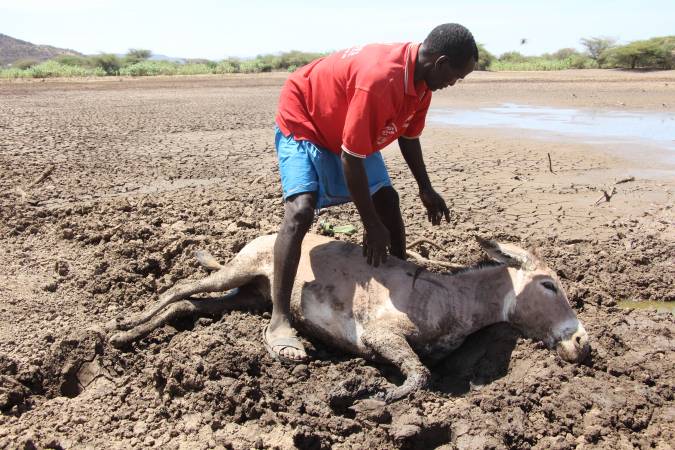Kenyan leaders are culpable for current food crisis
By PD columnist, May 6, 2022The food crisis facing parts of the country is biting in many ways. There is a shortage of food, leaving many citizens starving.
The low supply of food is hugely a cause of the high cost of commodities that have been witnessed in recent times.
To attain food security and manage a relatively lower cost of living through low cost of food items, a country should employ measures such as favourable trade policies, especially on farming inputs and taxation, improve agricultural infrastructure programs and work to counter the effects of climate change through strategies such as dams construction and irrigation expansion and improvement.
This is the job our elected leaders and their appointees are charged with. There was a brilliant idea to increase the acreage under irrigation significantly through the Galana Kulalu irrigation scheme. Dams such as Arror and Kimwarer were meant to greatly improve agricultural production in the Rift Valley, which is a major food basket for the country.
It is the failure of such major projects that has made it difficult to bridge the gap between annual yield and demand for food. Felix Koskei, Willy Bett and Mwangi Kiunjuri were at the helm of the Agriculture ministry and are responsible for the mess we are in today.
The Galana project was aimed at putting a million acres of land under irrigation, producing around 40 million bags of maize.
This is equivalent to Kenya’s net maize import at the time and would have saved the country billions of shillings spent on supplementary imports. Unfortunately, the project’s failure has left Kenya food insecure.
The Itare, Arror and Kimwarer dam scandals dealt a big blow to irrigation agriculture in Rift Valley. In 2018, appointees at the ministry and the National Cereals and Produce Board could not explain a discrepancy in the amount of fertiliser bought under the government subsidy programme and the amount of fertiliser recorded in the sales books.
This means close to 400,000 bags of the subsidised fertiliser could not be accounted for at the time. Deputy President William Ruto was at one time Minister for Agriculture.
The infamous maize scandal of 2009 that hit Kenya happened at a time he was in charge. Then Ikolomani MP Boni Khalwale, now Kakamega senatorial aspirant on a UDA ticket, pointed accusing fingers at Ruto as a culprit in the scandal.
All the documents presented by Khalwale linking Ruto to the scandal were accepted by the National Assembly. The scandal led to then Prime Minister Raila Odinga firing Ruto from the Cabinet before he was reinstated by President Kibaki. Eventually, Ruto was transferred to another ministry.
Another factor in the cost of living is the tax regime. Taxes on various products affect the final price that consumers have to pay for goods and even services.
The fuel levy fund, for instance, was passed in 2018 with great support from Kimani Ichung’wah as the chair of the National Assembly budget committee and Aden Duale, who was the House Leader of Majority.
The effects of taxation on the cost of living have been the doing of Ruto’s main lieutenants who held leadership positions in both Houses. Therefore, Ruto’s suitability as a man to solve the high cost of living should be determined based on his past record and reaction to the same.
As money for various development projects is lost to corruption, the national resources get strained, and projects such as those for irrigation and subsidy programmes fail.
The result is a shortage of basic commodities and the inevitable rise in the cost of living. — The writer comments on topical issues
More Articles

